PTF Impacts
Provost's Teaching Fellows have made lasting impacts in their departments, colleges and schools, all of the University of Texas, and even the broader scholarship of teaching and learning. Through both individual initiatives and university-wide programs, PTFs continue to serve as catalysts for positive change and further our campus culture of teaching and learning.
Displaying 51 - 75 of 82
ClioVis: Kendra Scott WEL Female Founder Competition Semi-Finalist and Crowd Choice Winner
The Kendra Scott Women's Entrepreneurial Leadership Institute (KS WELI) held the inaugural Female Founder Pitch Competition in October 2021.
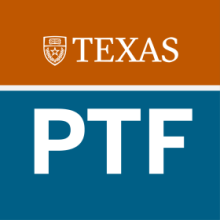
Teaching Tips 2020-2021
Each year, the PTF Chair-Elect has the opportunity to share recurring Teaching Tips with all faculty at UT. These messages cover a variety of topics, styles, and methodologies, from brief and practical classroom strategies to in-depth conversations with voices from across campus.
This year’s Teaching Tips were written by Chair-Elect Stephanie Seidel Holmsten, from the International Relations and Global Studies program.
UT Austin Physics Departmental Colloquium
Vernita Gordon was a featured presenter at the UT Austin Physics Departmental Colloquium series on December 1, 2021. This series of events features physicists from within and outside of the University, and is open to all UT faculty, students, and staff. Gordon presented on her PTF Initiative, "Being Human in Physics."

Measuring the interplay of prior background with instructional method in a highly heterogeneous classroom: a case study (American Physical Society)
Vernita Gordon presented a paper at the 2021 March Meeting of the American Physical Society, an international-scope conference for physics scholars .... The paper was part of a session titled "Physics Education at All Stages,"
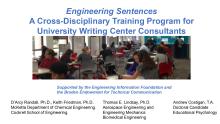
Engineering Sentences at a Writing Center: A Cross-Disciplinary Collaboration (College Composition and Communication Regional Conference)
D'Arcy Randall gave a virtual presentation about the pilot program developed as part of her PTF Initiative at the College Composition and Communication Regional Conference at the University of Southern California on Dec. 19, 2020.

Integrating an Architectural Engineering Undergraduate Program with Building Information Modeling (Journal of Architectural Engineering)
PTF Fernanda Leite co-authored this article in the Journal of Architectural Engineering. The article examines the integration of Building Information Modeling (BIM) into an undergraduate Architectural Engineering course, which was a core component of Leite's PTF Initiative.
Read the complete paper here, or find the abstract below.

BIM for Design Coordination: A Virtual Design and Construction Guide for Designers, General Contractors, and MEP Subcontractors
PTF Fernanda Leite authored the academic text BIM for Design Coordination: A Virtual Design and Construction Guide for Designers, General Contractors, and MEP Subcontractors. Leite's book includes a chapter specifically about teaching Building Information Modeling (BIM) in college courses titled "BIM Teaching Considerations," which is directly related to the work done in her PTF Initiative.
View the chapter here, or read the summary below.

The Perspectives of Three Universities’ Building Information Modeling Course Development (ASEE)
PTF Fernanda Leite co-presented this paper at the American Society of Engineering Education (ASEE) Virtual Annual Conference in June 2020.

Editor's Choice Award: ClioVis Description, Origin, and Uses (Digital Humanities Now)
"ClioVis: Description, Origin, and Uses," a September 2020 article from Not Even Past: the digital magazine of the UT Department of History, was awarded Editor's Choice by the online aggregate Digital Humanities Now.

Navigating Difficult Dialogues in the (FTF or Virtual) Classroom (American Anthropological Association)
On December 10, 2020, Pauline Strong coordinated and led a Difficult Dialogues-style workshop and panelist at the virtual meeting of the American Anthropological Association. Strong presented and spoke on a panel alongside other UT Austin colleagues. During this initiative we reached additional faculty through developing a Faculty Learning Community and extensive online Difficult Dialogues resources.
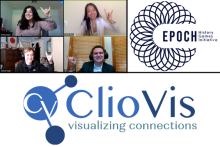
Digital Projects Enrich Undergraduate Research: ClioVis and Epoch (History Department News)
ClioVis, the digital timeline visualization tool created by Erika Bsumek as part of her PTF Initiative, was highlighted in UT Department of History News on May 25, 2020 by Dr. Megan Raby. The article explored the ways that ClioVis and Epoch, an initiative by History faculty Adam Clulow, are being used to create undergraduate research opportunities for UT liberal arts and history students.

Things a Physicist Rarely Talks About (Grow PoLS)
On October 25-26, 2020, Rice University hosted the Grow PoLS Virtual Workshop: Growing Equity, Inclusion and Diversity for the Physics of Living Systems. The purpose of this PoLS (Physics of Living Systems) workshop was to grow the ecosystem of physics by recognizing the systemic barriers that exist in STEM fields at all education and career levels, by building alliances, and by sharing best practices to overcome these systemic barriers.

Sustaining and Scaling Up Virtual Exchange at an R1 University (International Virtual Exchange Conference)
The International Virtual Exchange Conference (IVEC) is the largest and most prominent international event on virtual exchange, providing a forum for an audience of deans, directors, faculty, instructional designers, administrators, and professionals from institutions around the world interested in technology, international education, and new pedagogies.

Teaching Tips 2019-2020
Each year, the PTF Chair-Elect has the opportunity to share recurring Teaching Tips with all faculty at UT. These messages cover a variety of topics, styles, and methodologies, from brief and practical classroom strategies to in-depth conversations with voices from across campus.
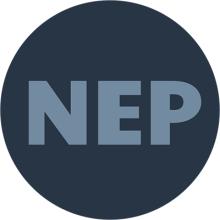
Interview with Dr Erika Bsumek, the creator of ClioVis (Not Even Past, UT Department of History)
In September 2020 History faculty Adam Clulow interviewed Erika Bsumek for Not Even Past, the digital magazine of the UT Department of History, to discuss the development, use, and impacts of ClioVis, the digital timeline visualization tool created as part of Bsumek's PTF Initiative. This article is part of a wider series that explored how teachers and students across the History department, the university and world more generally responded in new ways to the unprecedented classroom environment faced in a time of global pandemic.

Thinking Critically with ClioVis (Pedagogy Playground)
Dr. Lindsey Passenger Wieck, faculty at St. Mary's University in San Antonio, Texas, reviewed ClioVis for the pedagogy blog Pedagogy Playground: Innovative Teaching in Higher Education in February 2020. The review discusses her experiences with ClioVis during and after a workshop led by Bsumek, and goes on to highlight the features of the tool which she finds most compelling: interactivity, collaboration, ease of use, exportability, and applications outside of coursework.
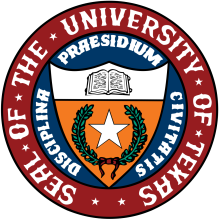
Critical Literacies Project: ClioVis (UT System P20 Projects)
The UT System works with internal and external partners to foster critical literacies in students across the P20 continuum. UT institutions work to cultivate these literacies in students across traditional and emerging academic disciplines, and through partnerships and programs in PK12 schools, communities, and business and industry across Texas.

Qualitative and Quantitative Impact of Metacognitive Interventions in Supplemental Instruction Sessions (ASEE)
Former PTF chair Nina Telang co-presented this paper at the American Society of Engineering Education (ASEE) Virtual Annual Conference in June 2020.

Drivers Exercise
Before deciding what your career goals are, it’s critical to know what you value most in a job. What gets you out of bed to go to start the day, go to work, and/or live your life? This exercise will help you define and prioritize what drives you. We provide definitions of 8 common "drivers". Once you understand these drivers, you can take the exercise and go through a ranking process to determine which are most important to you (i.e. you’re less likely to compromise on these) and which are less important (i.e. you’re more willing to compromise on these).

Effectiveness of the Supplemental Instruction Program in First-Year Engineering Courses - A Longitudinal Report (ASEE)
Former PTF chair Nina Telang co-presented this paper at the American Society of Engineering Education (ASEE) Annual Conference in June 2019.

Improving Teaching Efficacy Through Performance Training (ISETL)
Former PTF chair Jen Moon co-presented at the International Society for Exploring Teaching & Learning (ISETL) Annual Conference in October 2019.
Explore the conference proceedings (Thursday, Friday, Saturday) or read the abstract below.
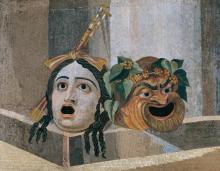
Podcasting, Performance, and Pedagogy (Sententiae Antiquae)
PTF Deborah Beck and her PTF Initiative were featured as a guest post of Sententiae Antiquae, a scholarly Classics blog with over 27,000 readers.
In the post Beck describes some of the reasons for and benefits of using podcasting as a tool for learning in Classics courses:
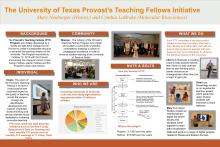
UT Provost's Teaching Fellows Initiative (Reinvention Collaborative, UERU)
PTF Leaders Cynthia LaBrake and Mary Neuburger presented both a poster and a talk at the 2018 Reinvention Collaborative meeting (now the Association of Undergraduate Education at Research Universities, UERU) on November 8-10, 2018 in Arlington, Virginia. The 2018 Biennial National Conference featured more Undergraduate Vice Presidents/Provosts and more participants overall than any previous Reinvention Collaborative meeting.
Standardized elements for OCSE
Objective Structured Clinical Examinations, known as OSCEs, are a widely established assessment practice in Pharmacy education. PTF Renee Acosta created OSCE rubrics as part of her PTF initiative to help students gain constructive feedback and more consistent practice of their skills prior to moving on to future courses. Acosta's rubrics that have since been used as the foundation for future PTF projects and other OSCE rubrics used within department.
View the rubrics here.

ClioVis Digital Timelines: Visualizing Connections
Erika Bsumek built the ClioVis digital timelines platform for instructors and students to build interactive digital timelines as part of their coursework or scholarly initiatives. The platform has been used by thousands of students across the US, including throughout the UT System, University of Michigan, Stanford, and others, in both humanities and STEM disciplines, as well as for research initiatives.

